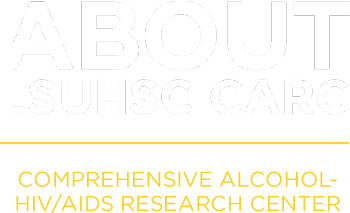
RESEARCH COMPONENT 1

Community, interpersonal stress, alcohol & chronic comorbities among PLWH
Principal Investigators: Tekeda Ferguson, PhD; LSUHSC & Katherine Theall, PhD; Tulane University

Overall hypothesis: Exposure to stressors at the community and interpersonal levels will impact clinical comorbidities, such as cardiometabolic and cognitive outcomes in PLWH, through impacts on alcohol use and additional behavioral and coping mechanisms.
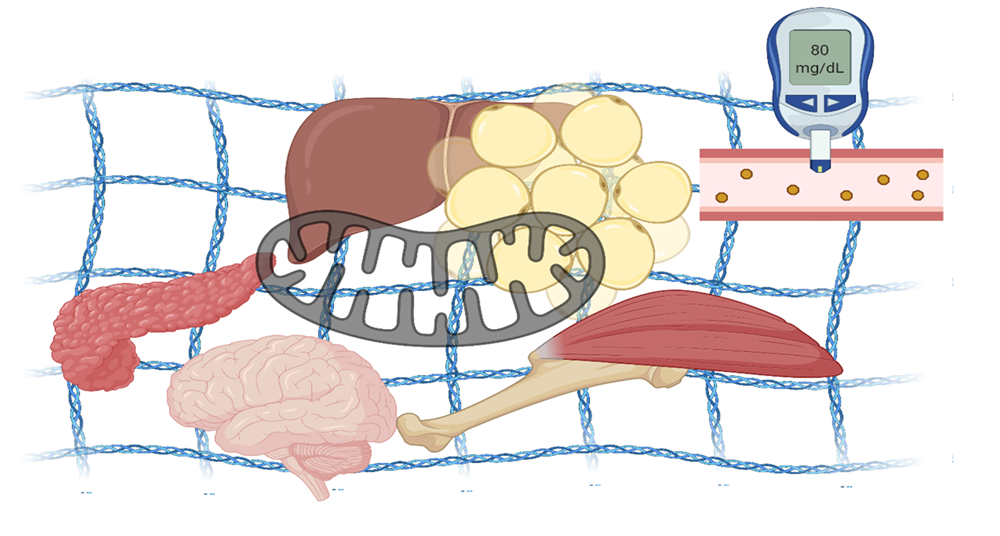
Alcohol & metabolic dysregulation in persons living with HIV; mechanisms underlying risk for comorbidities
Principal Investigator: Patricia Molina, MD, PhD; LSUHSC
Co-Investigators: Liz Simon, BVSc, PhD

Overall hypothesis: The overall hypothesis is that alcohol promotes cellular energy metabolism dyshomeostasis in control (brain and pancreas), effector (liver and adipose), and target (musculoskeletal) organs increasing the risk for comorbidities in persons living with HIV.

Neurological Consequences of alcohol and Western diet in the context of HIV
Principal Investigator: Scott Edwards, PhD; LSUHSC
Co-Investigators: Mike Salling, PhD & Harry Gould, MD; LSUHSC

Overall hypothesis: Excessive drinking & HIV/ART exposure in individuals consuming a Western Diet additively produce cognitive deficits and hyperalgesia in persons living with HIV in association with increased glucocorticoid signaling and hyperexcitability within the prefrontal cortex..

Alcohol, immune activation, senescence, & activation induced cell death in PLWH
Principal Investigator: David Welsh, MD; LSUHSC
Co-investigator: Robert Siggins, PhD; LSUHSC

Overall hypothesis: Alcohol use disorder in persons living with HIV increases CD8+ T-cell activation and proliferation and reduces activation-induced cell death leading to the accumulation of senescent cells. Furthermore long-term alcohol exposure results in cellular and tissue senescence leading to clinical aging.
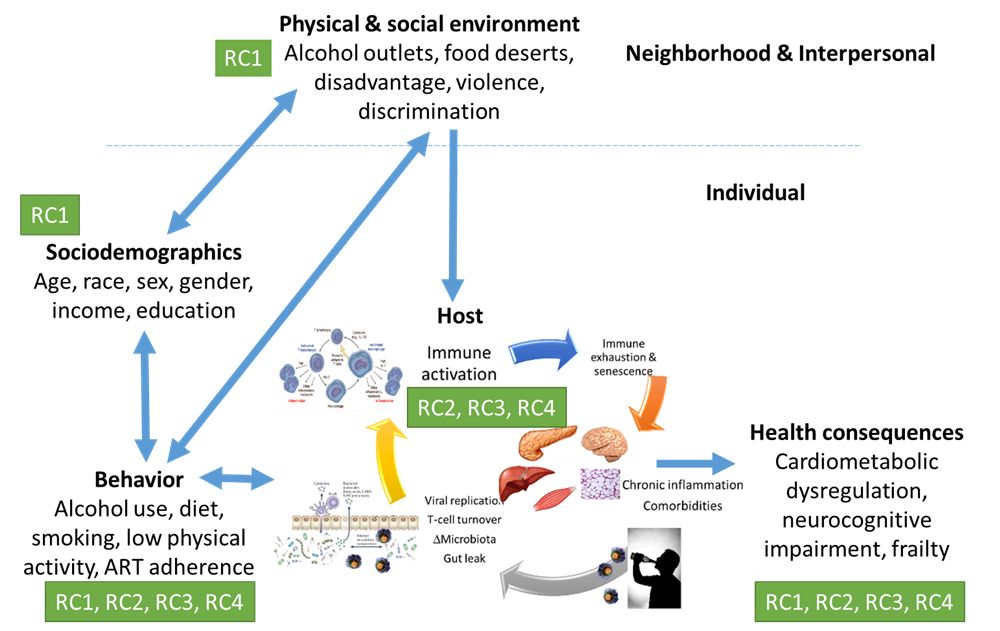
Information Dissemination Core

Overall goal: Develop interdisciplinary collaborative networks that will impact alcohol- and HIV-related knowledge, attitudes, and behaviors by educating the scientific and lay communities on the neurobiological basis and biomedical consequences of alcohol use and abuse, and the risk factors and biological underpinnings of HIV. Activities are organized into three major categories based on target populations: 1) Persons living with HIV and individuals at risk for HIV and/or alcohol use disorder, 2) Practicing and in-training health care providers, and 3) CARC research faculty and trainees.
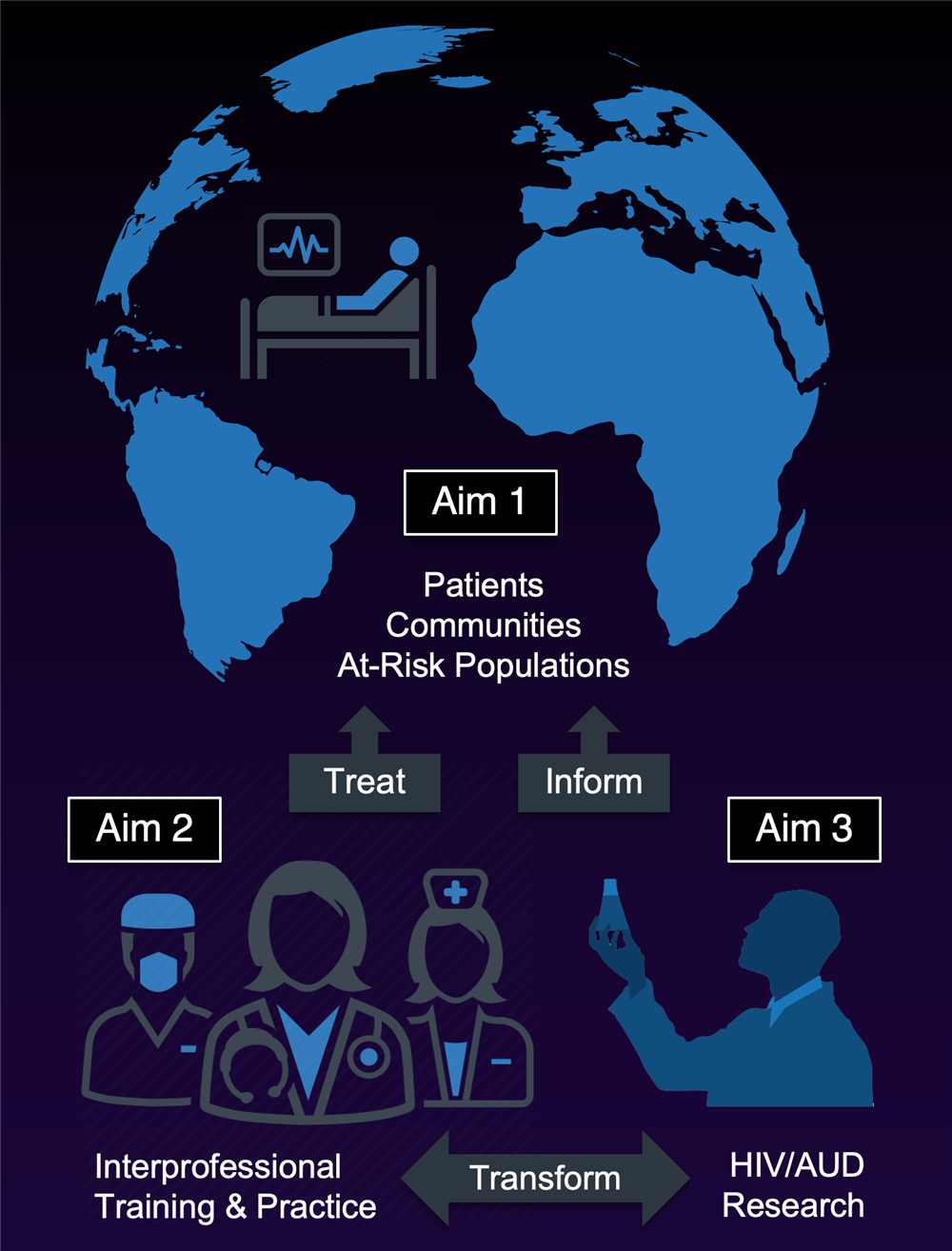
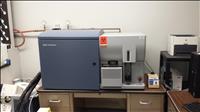 CARC Biospecimen Processing & Analysis Laboratories
CARC Biospecimen Processing & Analysis Laboratories
Associate Director: Robert Siggins, PhD

CARC biospecimen processing, storage, and analysis is centralized in the Analytical and Experimental Core. The multidisciplinary analytical Core consists of Flow cytometry, Molecular Biology/Analytical, and Cell Culture Laboratories dedicated to support CARC related research projects.
Analytical capabilities include gene cloning, RT-qPCR and standard curve generation, Western blot analysis, ELISA, ELISPOT, Multiplex protein arrays, and DNA methylation activity assays.
The Core has a BSL-2 cell culture facility equipped to handle pre-clinical and human samples and for the generation of primary cell lines for mechanistic studies. Techniques commonly used in the laboratory include in vitro PBMC stimulation, isolation of primary bone marrow mesenchymal stromal cells, in vitro SIV/HIV infectivity assays, and time-lapse microscopy of living in vitro cultures contained in a humidified chamber on a heated stage microscope.
Contact: Liz Simon, PhD Email: lsimo2@lsuhsc.edu Phone: 504.568.3395
Robert Siggins, PhD Email: rsiggi@lsuhsc.edu Phone: 504.568.2045
Funding for this site is provided by The National Institute on Alcohol Abuse and Alcoholism (NIAAA).
